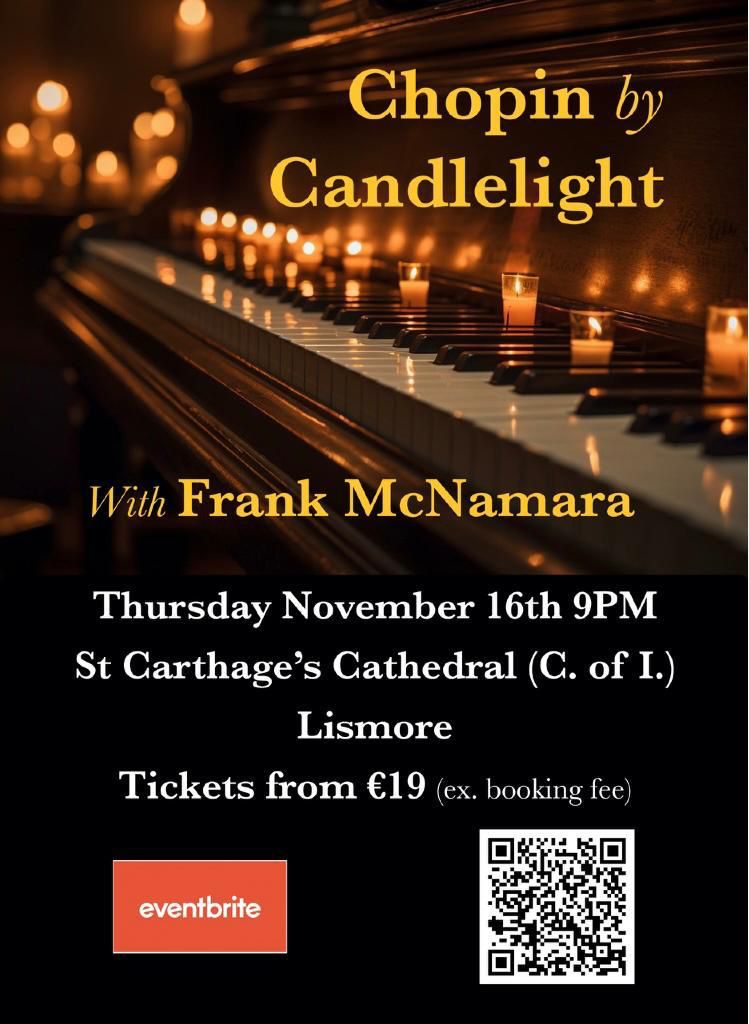
Thursday, November 16th 9 p.m.
St. Carthage’s Cathedral (Church of Ireland), Lismore
Tickets from 19 euros (excluding book fee)
Back to Archive

Thursday, November 16th 9 p.m.
St. Carthage’s Cathedral (Church of Ireland), Lismore
Tickets from 19 euros (excluding book fee)